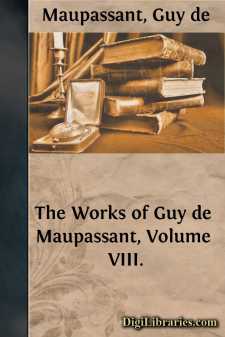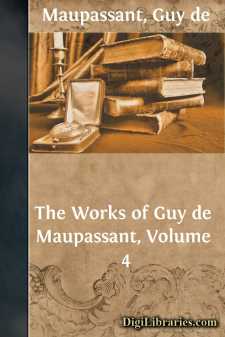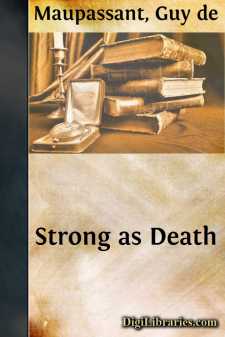Categories
- Antiques & Collectibles 13
- Architecture 36
- Art 48
- Bibles 22
- Biography & Autobiography 813
- Body, Mind & Spirit 142
- Business & Economics 28
- Children's Books 15
- Children's Fiction 12
- Computers 4
- Cooking 94
- Crafts & Hobbies 4
- Drama 346
- Education 46
- Family & Relationships 57
- Fiction 11828
- Games 19
- Gardening 17
- Health & Fitness 34
- History 1377
- House & Home 1
- Humor 147
- Juvenile Fiction 1873
- Juvenile Nonfiction 202
- Language Arts & Disciplines 88
- Law 16
- Literary Collections 686
- Literary Criticism 179
- Mathematics 13
- Medical 41
- Music 40
- Nature 179
- Non-Classifiable 1768
- Performing Arts 7
- Periodicals 1453
- Philosophy 64
- Photography 2
- Poetry 896
- Political Science 203
- Psychology 42
- Reference 154
- Religion 513
- Science 126
- Self-Help 84
- Social Science 81
- Sports & Recreation 34
- Study Aids 3
- Technology & Engineering 59
- Transportation 23
- Travel 463
- True Crime 29
Mademoiselle Fifi
Description:
Excerpt
Guy de Maupassant
Guy de Maupassant was born at the Chateau de Miromesnil, near Dieppe, on August 5th, 1850. The Maupassants were an old Lorraine family who had settled in Normandy in the middle of the Eighteenth Century. His father had married in 1846 a young lady of the rich bourgeoisie, Laure Le Poittevin. With her brother Alfred, she had been the playmate of Gustave Flaubert, the son of a Rouen surgeon, who was destined to have a directing influence on her son's life. She was a woman of no common literary accomplishments, very fond of the Classics, especially Shakespeare. Separated from her husband, she kept her two sons, Guy and his younger brother Hervé.
Until he was thirteen years old Guy lived with his mother at Etretat, in the Villa des Verguies, where between the sea and the luxuriant country, he grew very fond of nature and out door sports; he went fishing with the fishermen of the coast and spoke patois with the peasants. He was deeply devoted to his mother. He first entered the Seminary of Yvetot, but managed to have himself expelled on account of a peccadillo of precocious poetry. From his early religious education he conserved a marked hostility to Religion. Then he was sent to the Rouen Lycée, where he proved a good scholar indulging in poetry and taking a prominent part in theatricals. The war of 1870 broke out soon after his graduation from College; he enlisted as a volunteer and fought gallantly. After the war, in 1871, he left Normandy and came to Paris where he spent ten years as a clerk in the Navy Department. During these ten tedious years his only recreation was canoeing on the Seine on Sundays and holidays. Gustave Flaubert took him under his protection and acted as a kind of literary guardian to him, guiding his debut in journalism and literature. At Flaubert's home he befriended the Russian novelist Tourgueneff and Emilie Zola, as well as many of the protagonists of the realistic school. He wrote considerable verse and short plays. In 1878 he was transferred to the Ministry of Public Instruction and became a contributing editor to several leading newspapers such as Le Figaro, le Gil Blas, le Gaulois and l'Echo de Paris. He devoted his spare time to writing novels and short stories. In 1880 he published his first masterpiece, "Boule de Suif", which met with an instant and tremendous success. Flaubert characterized it as "a masterpiece that will remain."
The decade from 1880 to 1891 was the most fertile period of Maupassant's life. Made famous by his first short story, he worked methodically and produced two and sometimes four volumes annually. By a privilege of nature and his Norman origin, he combined talent and practical business sense, which brought him affluence and wealth. In 1881 he published his first volume of short stories under the title of "La Maison Tellier"; it reached its twelfth edition in two years; in 1883 he finished his first novel "Une Vie", twenty-five thousand copies of which were sold in less than a year. Glory and Fortune smiled on him....












